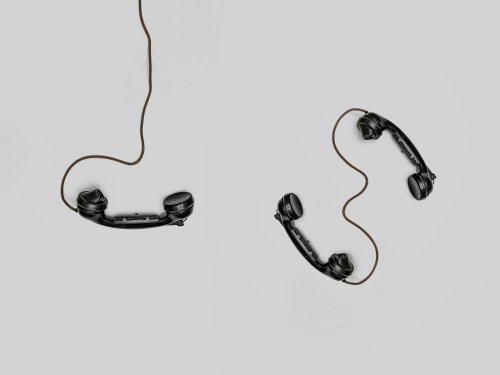Do Cheaters Realize What They Lost? The Moment Everything Hits Them
Most cheaters eventually realize what they lost, but usually too late. Understand when the regret hits and why it rarely leads to redemption

The question haunts many people who've been betrayed: Do cheaters realize what they lost? After the initial shock fades and you're left picking up pieces of a shattered relationship, it's natural to wonder if the person who destroyed everything ever grasps the magnitude of their choices. The answer is more complex than a simple yes or no. Most cheaters do realize what they've lost, but the timing, depth, and consequences of that realization vary dramatically from person to person.

Understanding when and how cheaters come to recognize their mistakes doesn't undo the damage they caused. It won't erase the betrayal or magically repair broken trust. However, knowing this process helps you make sense of their behavior, release false hope about reconciliation, and find closure on your own terms. The reality is that by the time most cheaters fully grasp what they threw away, the opportunity to fix it has long passed.
The Initial Aftermath: When Realization Doesn't Happen
Immediately after cheating is discovered or confessed, most cheaters don't truly understand what they've lost. Their minds are consumed with managing the fallout, defending their actions, or juggling the logistics of their double life collapsing. Some experience relief that the secret is finally out. Others feel anger at being caught or frustration that their carefully constructed lies unraveled.
During this phase, many cheaters operate in self-protection mode. They minimize the affair's significance, blame their partner for driving them to it, or insist the betrayed partner is overreacting. This defensiveness isn't necessarily a calculated cruelty, though it certainly feels that way. It's psychological self-preservation.
The fog of justification clouds their judgment during these early days and weeks. They tell themselves stories that make their behavior more palatable: the relationship was already dead, they deserved happiness, or the affair meant nothing. These narratives protect them from the crushing weight of genuine accountability, but they also prevent real understanding of the devastation they've caused.
When the Affair Partner Loses Appeal
One significant moment when cheaters start realizing what they lost comes when the affair partner's shine fades. Affairs exist in fantasy bubbles, built on stolen moments, adrenaline, and the absence of real-world responsibilities. There are no arguments about bills, dirty laundry, etc. Everything stays exciting because nothing is real.
When cheaters leave their exclusive relationships for affair partners, reality crashes in hard. The person who seemed so perfect suddenly has flaws, needs, and expectations. The excitement disappears under the weight of normal relationship dynamics. Suddenly, the cheater realizes they destroyed a stable partnership with someone who truly knew and accepted them for someone who was mostly the projection of their own unmet needs.

This realization hits especially hard when they compare what they had to what they have now. Their former partner's patience, the history they built together, and the way that person supported them through difficult times. All of it becomes painfully clear once the dopamine rush of forbidden romance wears off.
Watching You Move Forward Without Them
Do cheaters realize what they lost when they see their ex-partner thriving? Absolutely. This moment often delivers the most brutal awakening. When the person they betrayed starts rebuilding their life, regaining confidence, and especially when they begin dating someone new, the cheater experiences a visceral understanding of permanent loss.
Seeing you genuinely happy without them shatters whatever narratives they constructed about you being unable to function without the relationship. They assumed you'd be devastated indefinitely, that they'd always have the option to return if they wanted. Your healing and growth remove that safety net.
Social media amplifies this realization. When they see photos of you laughing with friends, traveling, pursuing hobbies, or looking genuinely content, something shifts. The person they remember as broken and crying is now someone who appears lighter, freer, and more alive. Your new relationship, if you enter one, can trigger particularly strong regret. They watch someone else appreciate qualities they took for granted.
The Loneliness That Brings Clarity
Isolation often serves as the catalyst for genuine realization. When friends distance themselves after learning about the infidelity, when family members express disappointment, when they find themselves alone with their choices, clarity emerges. The cheater faces an uncomfortable truth: their actions have consequences that extend far beyond their relationship.
This loneliness differs from simply being alone. It's the specific isolation that comes from being known as someone who betrayed trust. Old friends may still be cordial, but no longer confide in them. Family gatherings carry tension. They become the person others warn their friends about, the cautionary tale, the one who proved themselves untrustworthy.
In this isolation, they have time to reflect without distractions or enablers. The justifications that worked when surrounded by people who supported their choices start sounding hollow when they're alone with their thoughts. Many cheaters report that this period, however painful, is when they truly begin understanding the gravity of what they've done.
When Life's Challenges Reveal What They Lost
Major life difficulties often illuminate what cheaters sacrificed. When they face job loss, health crises, family emergencies, or other significant challenges, they realize the person who would have been their rock through these struggles is gone. The betrayed partner, who once offered unconditional support, is no longer available to lean on.
These moments of vulnerability expose the difference between superficial connections and deep partnerships. An affair partner might offer sympathy, but they lack the years of shared history that make support truly meaningful. The cheater finds themselves missing specific things: how their ex-partner would know exactly what to say during stressful times, the shorthand communication developed over years together, or the comfort of being with someone who knew them before success or failure defined them.

Seeing Their Children Struggle
For cheaters with children, watching their kids suffer delivers perhaps the most devastating realization of what they've lost. The broken family structure, the pain in their children's eyes, and the complicated custody arrangements all serve as constant reminders of the collateral damage their choices created.
Children of divorce or parental infidelity often struggle with trust issues, anxiety, and relationship problems of their own. When cheaters watch their kids hurt, when they see the impact on school performance or emotional well-being, the weight of their actions becomes undeniable. This particular form of regret carries extra pain because it can't be undone.
Why Realization Rarely Leads to Redemption
Understanding this is critical: even when cheaters fully realize what they lost, it rarely results in meaningful redemption or reconciliation. By the time they grasp the magnitude of their choices, too much damage has occurred. The betrayed partner has usually moved through their own healing journey and no longer wants or needs what the cheater belatedly offers.
Genuine remorse requires more than feeling sorry for yourself or regretting consequences. It demands taking full accountability without excuses, understanding the specific pain you caused, and accepting that forgiveness is not owed regardless of your regret. Most cheaters struggle with this level of emotional maturity even after they realize what they've lost.
Additionally, many people confuse missing what they had with actually understanding what they destroyed. They miss the comfort, stability, and support their partner provided, but that's different from recognizing the profound betrayal they committed.
Conclusion

So, do cheaters realize what they lost? Yes, most eventually do. But this realization typically arrives far too late to. By the time the full weight of their choices becomes clear, the betrayed partner has often healed, moved on, and built a life that no longer includes them. The cheater is left with regret that serves no purpose beyond their own emotional reckoning.
This timeline exists for good reason. Betrayed partners deserve the space and time to heal without being pressured by a cheater's belated epiphany. Your healing shouldn't wait for someone else's realization that rarely brings meaningful change anyway. Whether or not the person who betrayed you ever understands what they lost, you can move forward knowing their recognition doesn't define your worth or future.
The satisfaction of them eventually understanding what they destroyed is real but ultimately hollow. It doesn't undo the pain, restore what was broken, or validate your experience. Your peace comes from your own healing journey, not from their regret. Let them live with their realizations while you build something better than what they took away.
Share
What's Your Reaction?
 Like
0
Like
0
 Dislike
0
Dislike
0
 Love
0
Love
0
 Funny
0
Funny
0
 Angry
0
Angry
0
 Sad
0
Sad
0
 Wow
0
Wow
0















